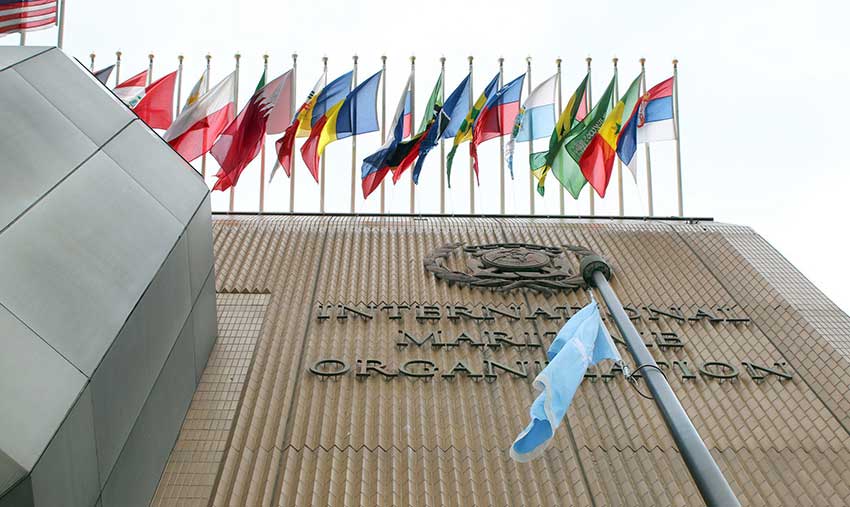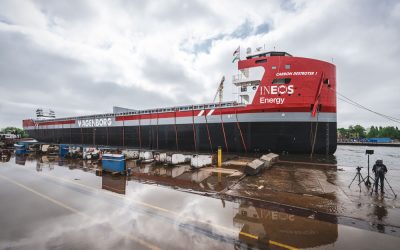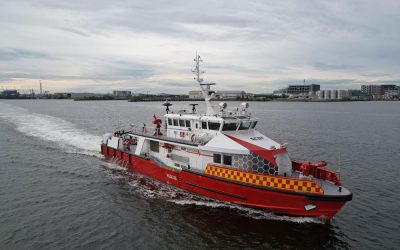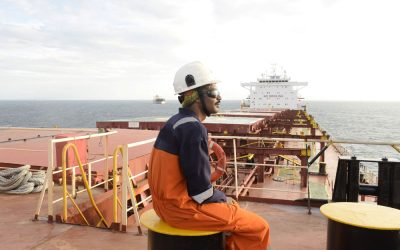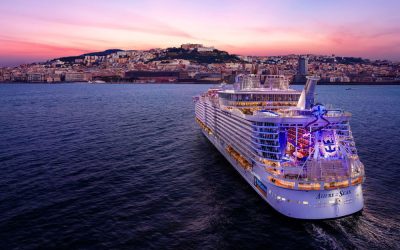In July, the IMO Council will convene for the election of a new Secretary General. Needless to say the pending appointment will come at a critical time for the organisation, particularly with regard to the growing outside pressure to adopt binding and robust instruments to tackle shipping’s carbon emissions. As befits one of maritime’s most prominent roles the position has attracted candidates with a wealth of experience, many of them well known within the industry.
Among these one name is notable for his long association with the organisation, both as a representative of the Panama Maritime Authority (AMP) and later as an integral member of IMO staff. Originally a naval architect by training Arsenio Antonio Dominguez Velasco has played a pivotal part in such matters as the development of anti-piracy measures, the Ballast Water Management Convention and addressing the plight of seafarers during the Covid-19 pandemic.
Speaking at London’s Panamanian Embassy, Dominguez tells The Naval Architect that 25 years of navigating IMO politics, during often challenging circumstances, make him ideally positioned to lead the organisation towards a less bureaucratic, more transparent way of conducting its business.
He explains: “To appreciate what is needed for IMO you have to know what it has been, where it needs to go, be knowledgeable enough about the organisation’s internal aspects to understand what can be done to improve the processes and how we support the member states. I have the energy, the willingness, experience and expertise to take it to the next level.”
Environmental focus
Since the start of 2022, Dominguez has served as director of the Marine Environment Division, where much of the daily operations revolve around supporting the work of the Marine Environment Protection Committee (MEPC), which he had previously chaired while serving as Panama’s ambassador to IMO between 2014 and 2017.
Unsurprisingly the environmental agenda is foremost among his strategic priorities but he’s keen not to downplay the considerable progress already made, citing the air pollution provisions of MARPOL Annex VI (adopted 1997) and Energy Efficiency Design Index (EEDI, adopted 2011), which marked the first time a UN-affiliated organisation had agreed to mandatory measures.
Dominguez acknowledges that five years on from the initial GHG strategy in 2018 maritime is now lagging behind other sectors, but is confident that MEPC 80 can deliver the necessary short and mid-term measures on the roadmap towards decarbonisation by the middle of the century. He describes the recently implemented Carbon Intensity Indicator (CII), a tool which encompasses supply chain questions that hitherto fell outside IMO’s remit, as a “great achievement”, albeit one which must continue to evolve and incumbent upon the flag states to effectively police shipowners making no obvious effort to comply.
“When the 2020 sulphur cap came into force developed a form for ships to demonstrate they tried to get compliant fuel but for whatever reason couldn’t. Then at least a ship could demonstrate it at least tried its best to meet the requirement. Obviously if it’s a recurrent situation then the port state control would need to take the necessary measures.”
Dominguez also advocates the adoption of some form of economic measure to support the funding of decarbonisation. “We currently have five proposals on the table, including levy and fee-based proposals. What’s important is that we gather the necessary agreement to move forward with an economic measure that is going to support this transition. We need to support the most vulnerable members, which are small and developing states. I would favour bringing these parties with different proposals together because they have commonalities.”
IMO’s funding depends upon the contributions of member states based on the tonnage of their fleets. But Dominguez is conscious of how much of this funding depends on continued goodwill and confidence in the organisation, making effective technical support for those that might be struggling to meet their obligations with instruments such as the Hong Kong Convention for ship recycling.
He explains: “Technical cooperation starts with an assessment of the needs of the member states. We have the Member States Audit Scheme as well as the needs that are expressed during discussion, which allows us enough information to do an assessment, then tailor the activity and carry it out.
“The important part is how we’re going to measure over a period of time, say two to three years, to review the success of that activity then go back and measure it again. Then we look into where that success has been replicated in others, as well as where success wasn’t achieved and the member state still needs additional support.
“That gives us the opportunity to better use the resources, both human and financial, and thereby become more attractive to donors outside, and we can provide tangible results into the implementation of the 2030 Agenda for Sustainable Development. Of course, these sustainable cooperation activities are focused on developing countries, particularly the LDCs [Least Developed Countries].”
Communicating better
The mantra of shipping’s need to communicate better with the wider world is one that resonates through much of Dominguez’s rhetoric. In 2021, IMO’s current Secretary General, Kitack Lim, found himself on the receiving end of harsh rebukes when investigative journalists ‘doorstepped’ him outside his London home after he allegedly avoided their requests for an interview. By contrast his would-be successor is keen to emphasise his belief in candour.
“The more that we talk the better IMO is understood. Yes, decisions are ultimately made by the member states but we play a role in that process. It’s not about passing the blame because it’s beyond my mandate.
“I don’t believe in negative press because when there’s news out there it gives us the opportunity to look at whether we’re communicating our successes the right way, or if the message is not getting across the way it should. At the same time are we knowledgeable enough of how people are seeing us? We are so global but we only seem to be on the news when something bad happens.”
“I believe in an IMO that is open and transparent, inclusive and diverse. The moment that you face all this you can take action. What is important for me is that we can stimulate the exchanges and discussions. The more we do that the better we collaborate,” he concludes.
Seven nominations have been received for the Secretary General elections, which are scheduled to take place on 18 July:
- Mr Moin Uddin Ahmed (Bangladesh)
- Mr Suat Hayri Aka (Türkiye)
- Mr Arsenio Antonio Dominguez Velasco (Panama)
- Dr Cleopatra Doumbia-Henry (Dominica)
- Mrs Nancy Karigithu (Kenya)
- Ms Minna Kivimäki (Finland)
- Mr Zhang Xiaojie (China)
